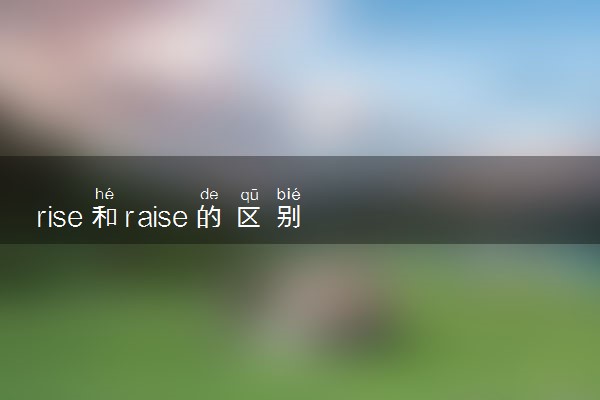专为高中生提供有价值的资讯
表示人或物体从低处往高处“抬高、上升”时,raise一般指的是人为地把某个对象抬高,而rise则指的是某个对象自己上升或抬高。Raise是及物动词,后面必须加宾语,即动作的对象,而rise是不及物动词,后面不需要加宾语。

“Raise” 和 “rise” 作动词时都有 “上升” 的意思,但它们的用法不同。
1. Raise
Raiseneeds a direct object - if youraisesomething you move it up. It has both literal and non-literal meanings and it is a regular verb, so it's past and past participle forms areraised.
动词 “raise” 后需要加直接宾语,如:“raise something”,意思是 “把某物举起、抬起、提起”。“Raise” 既可以指 “抬起具体的事物”,也可以表示 “增加,提高某事物”。“Raise” 是规则动词,所以过去式和过去分词均为 “raised”。
I raise my eyebrows when I'm surprised.
The government plan to raise taxes.
He raised his voice at me in anger, but I forgave him.
2. Rise
Rise does not take a direct object - things riseor go up by themselves.Riseis an irregular verb so the past form isroseand the past participle isrisen.
动词 “rise” 后不需要加直接宾语,如: “something rises”,意思是 “某物自己升起、升高”。“Rise” 是不规则动词,它的过去时为 “rose”,过去分词为 “risen”。
The sun rises at 6a.m.
The water level risestwice a day because of the tide.
The bird roseinto the air and flew away.
Copyright 2019-2029 http://www.laigaokao.com 【来高考】 皖ICP备19022700号-4
声明: 本站 所有软件和文章来自互联网 如有异议 请与本站联系 本站为非赢利性网站 不接受任何赞助和广告